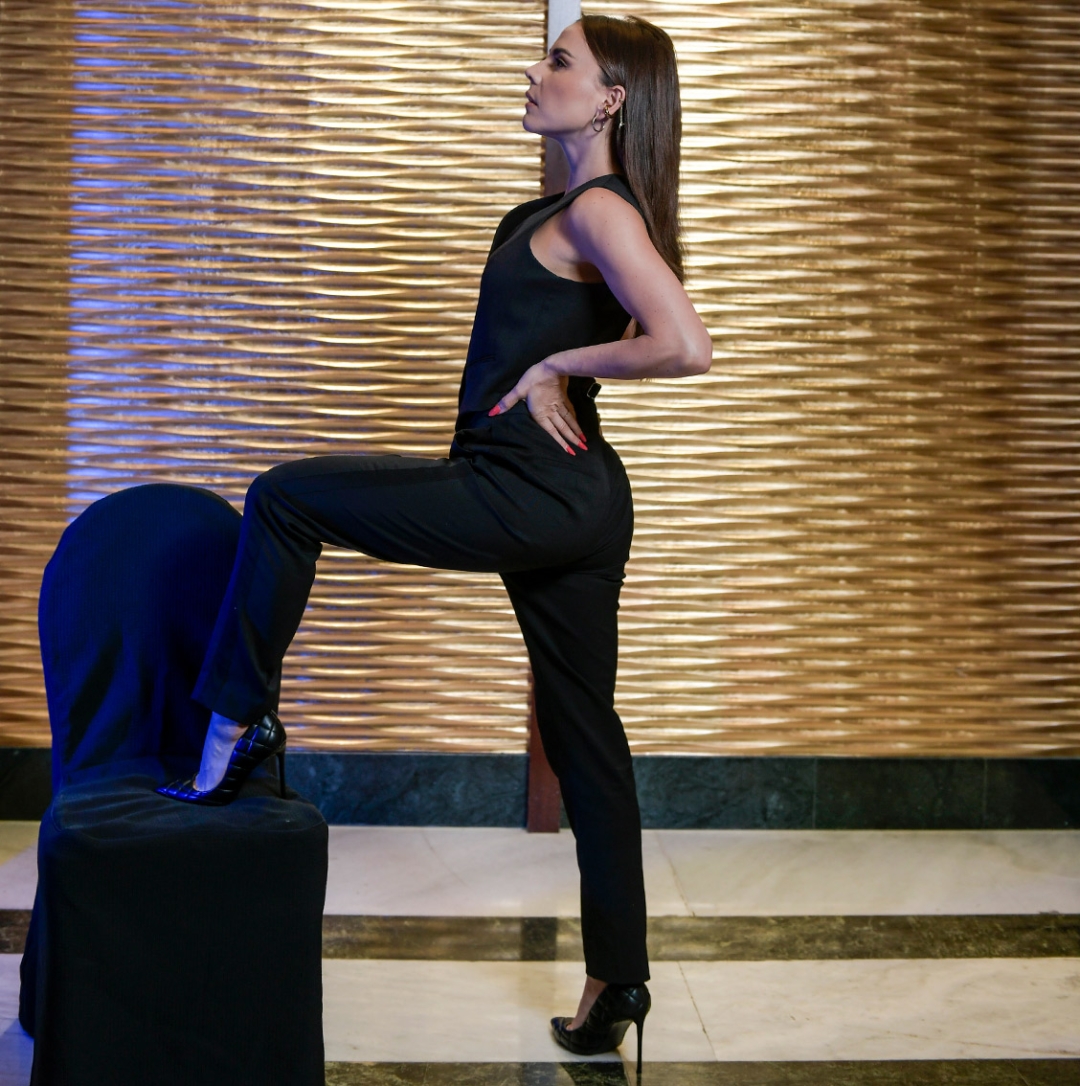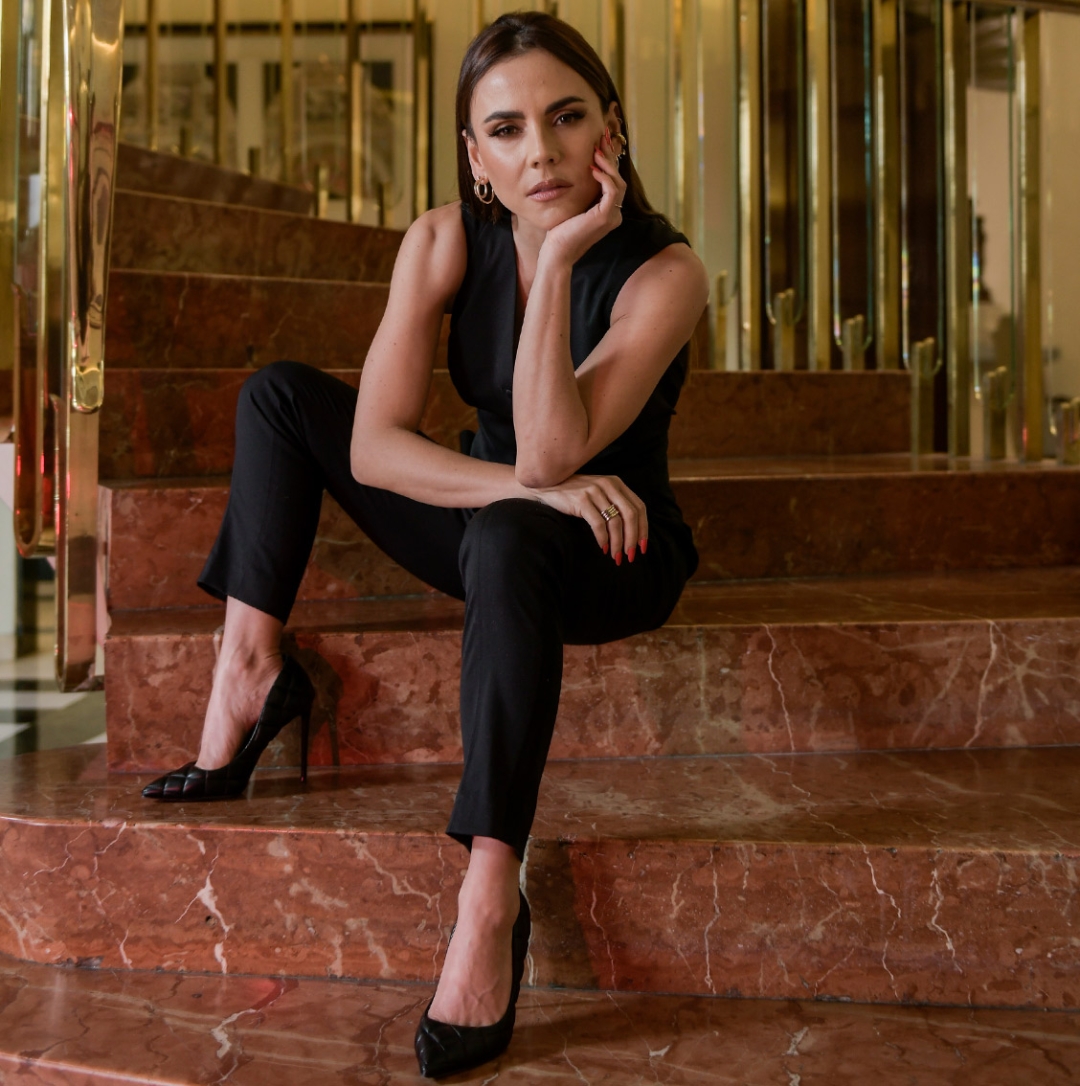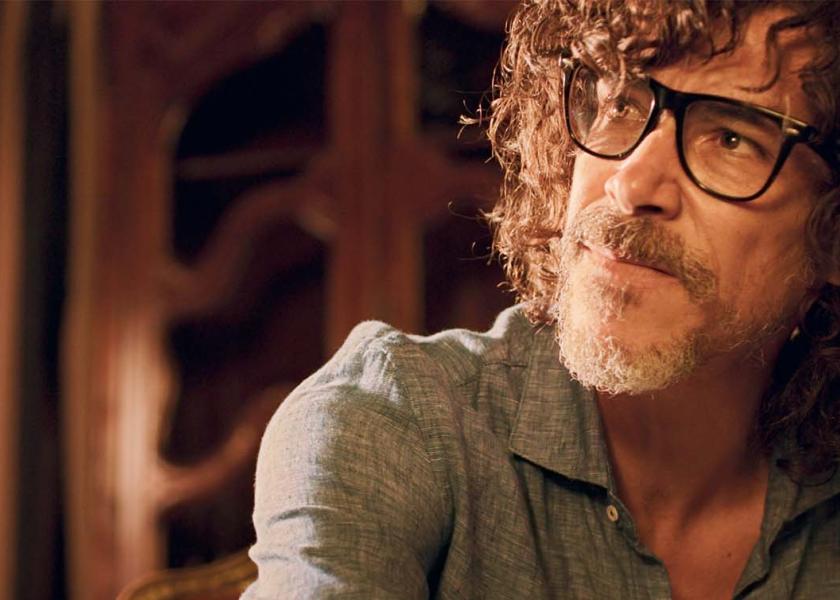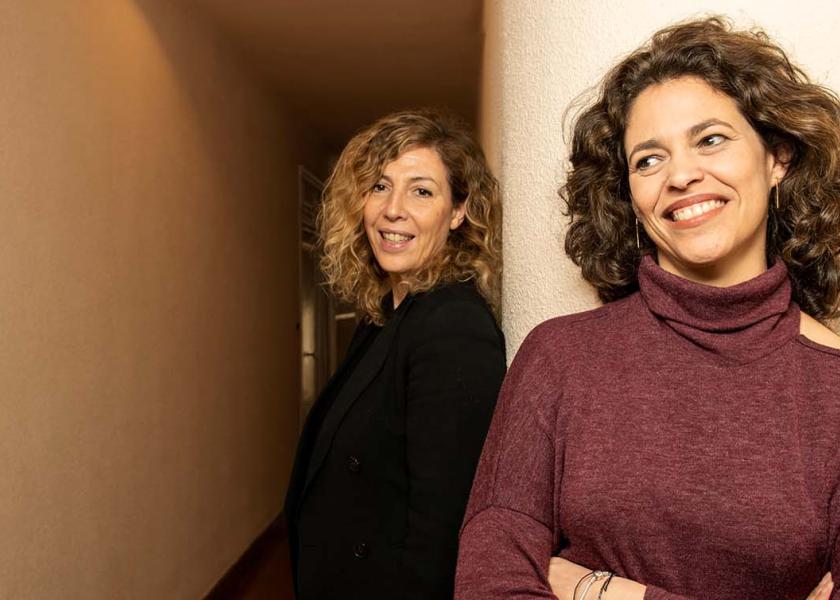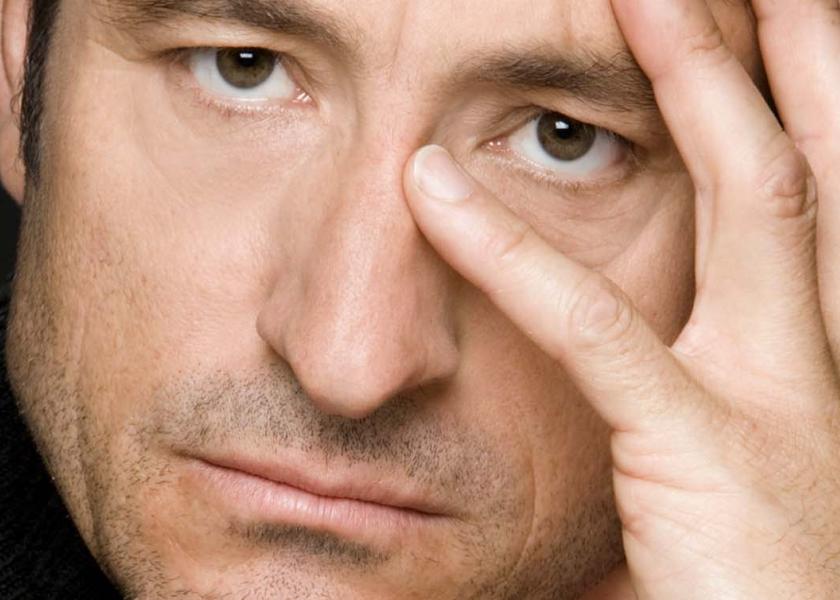Carolina Gaitán
The actress who could fly
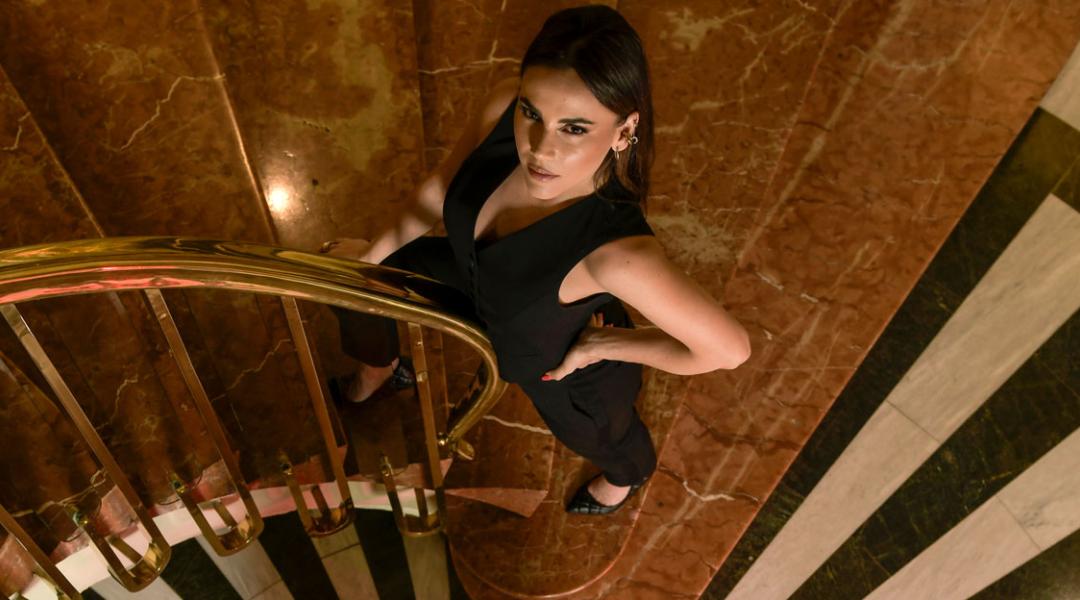
Carolina Gaitán (Colombia, 1984) showed promise from an incredibly young age, and has always been a spirited, curious, and relentless communicator and singer, almost since birth, according to her family. Funnily enough, the singer went from memorising Disney songs in her childhood to becoming the character Pepa in the recent animation film 'Encanto'.
During the Academy Awards —the film was up for three Oscar nominations—, Gaitán proudly presented the feature film’s theme song, “We Don’t Talk About Bruno”, as recognition of her native Colombia, but also of her almost 20-year professional career. A career that began when she won the TV contest Popstars in 2002 and continued with the musical band Escarcha, and then a solo career. She’s combined her musical side with a strong presence in the film industry, in series such as Narcos, Sin senos sí hay paraíso, or the more recent MalaYerba. The Colombian actress is in Madrid to hand out one of the awards at the 9th edition of the Platino Awards (known in Spanish as Premios Platino del Cine Iberoamericano), celebrated on the 1st of May.
How do you remember your childhood, living between aeroplanes and nature?
My childhood was unusual but beautiful: my father is a commercial pilot, and my mother, a private pilot, so I grew up between the earth, the jungle, and the sky. We lived in a large home with a garden on the Llano; we had plenty of animals, macaws, all the animals you can imagine, that came down from the mountain in front of my house. I was one of five siblings, and my memories of my childhood are very happy, I was never alone, and we were always on an adventure. Imagine seeing the entire jungle from the air, I remember those trips with my entire family in that small aircraft.
They even let you “steer” as a child.
Yes, it was beautiful... My father used to say “Chirlo, venga para acá” [Lark, come over here], because that’s what he calls me, after the eastern meadowlark, which is a small bird with thin legs. And I’d sit with him and take the wheel and... woooow. You know that feeling of dropping down and rising, as if there’s a void mid-air? And my sisters would shout: “That’s enough, Carolina, no more!”. Again, again! I always enjoyed risk, that feeling of falling into the abyss... Perhaps that has a lot to do with the career I chose: feeling that you can fly, that you can feel a lot of voids, but in the end, if you keep the wheel steady, you can carry on flying.
When you were little, you used to learn the songs from Disney films by heart... and in the end you became the voice of one of their characters, Pepa, in the film Encanto. What was that leap like?
I didn’t just know the songs; we watched the same Disney films five times a day with my brother! Today, lines from Alice in Wonderland or Beauty and the Beast still come to me. That’s why it was a dream come true, when I auditioned for a Disney film and I was chosen, because at that time I didn’t even know it’d be a film about Colombia. So, for me, it’s been a wonderful coincidence or “godsence” that precisely the song I sing on the soundtrack for the film has reached number one on the Billboard list.
"For me, talent is something that you’re given, that’s always with you, and is like your life’s mission"
Do you think that Encanto is a way of breaking down film stereotypes about Colombia?
Absolutely. And that only happens when the content is so well crafted that the audience applauds it, consumes it, and it becomes profitable. This film achieves this: we know that the content that reflected our country worked well in a narrative sense, and that’s why it was still made. But through Encanto, we’re also showing a different side of Colombia that’s also commercial. I’m really proud because we show our cuisine, colours, character, climate... We’ve always wanted to show off what makes us feel proud.
What did singing one of the songs from the soundtrack, “We Don’t Talk About Bruno”, at the Oscars ceremony mean to you? Do you think that was a key moment in your career?
If I made a timeline featuring the highlights of greatest artistic exposure, the Academy Awards ceremony would hold a special place, for sure. But another challenge, for me, has been to fill a theatre with an audience of 900 people and entertain them for an hour and forty minutes, by myself. I think prior experience onstage is key to enjoying the Oscars without dropping the mike... I took a deep breath and told myself: “Carolina, how many times have you done this? Many. Whether there’s one or two people or hundreds in a theatre, whether they’re famous or not. It doesn’t matter. They all deserve the same respect; this audience also deserves it.” That’s what I was thinking at the Oscars and that’s how I was able to step onstage and sing.
You’ve gone through tough times in your personal and professional life... Where do you find the strength to carry on?
Sometimes we only talk about success, but it’s also good to talk about the challenging times to remember that, if you’re brave, you can reach your goals. I’ve had to live through the loss of a brother, the fact that there was a time when my parents couldn’t help me with my studies... Like in many households, I’m just one of them. But if you have a strong, brave family that wants to move forward through positive things like hard work, you can make it. I’d say my father is my biggest inspiration: he’s the most resilient person I know, the one who’s supported me the most in my career and has encouraged me to follow my dream. He wanted to be a pilot when he was little, something that may have seemed extremely difficult in his context, but he did it.
Musically, who are your role models?
I listen to lots of boleros, Omara Portuondo, for example. There are beautiful stories told within the narrative of songs, like La Lupe, which I sang in the series ‘Celia’. Inspired by her, I built a musical monologue for the theatre, Vida porque solo hay una [Life because there’s only one], where I not only produce, but also play six characters, sing, and run through son cubano, bolero, and salsa. I did it thinking about the wild lives of big musical divas like Nina Simone, Janis Joplin, Aretha Franklin, La Lupe… Women for whom life wasn’t easy, but who speak from the heart through their art and music, and that’s why they make the music that they do.
Perhaps these women had talent in common. How would you define it?
For me, talent is something that you’re given, that’s always with you, and is like your life’s mission. You have to take it seriously, develop it seriously, with discipline, because through your talents you can change not only your own life, but also the lives of many others.
"The Platino Awards reflect that we may be physically apart, but we have so much in common at an artistic level"
Both in this show and in some of your other songs you empower women. Do you think it’s important to highlight that female role?
Absolutely. I’m interested in there being songs in music by women who speak clearly, fearlessly. I love the possibility of being able to continue opening doors to convey these kinds of messages through stories, the characters I play, and the songs I sing. We’re at a time where it’s really worth defending how important women’s role in society is, we have so much to say, so much to give, and so much to inspire.
What does presenting at the Platino Awards this weekend mean to you?
You have no idea how happy I am to come back to Madrid for this reason... This time, where I have so much to give to this market, is a wonderful opportunity to participate in the awards, even because I know I was prenominated in one of the categories, for the series MalaYerba. I feel really honoured, happy, and proud to be at this edition.
Do you think the Platino Awards strengthen the synergies between Ibero-American and Spanish film and culture?
It’s lovely to see that our content is consumed in Spain, just like Spanish content is consumed over there. The Platino Awards precisely reflect all of this: we may be physically apart, but we have so much in common at an artistic level. Regardless of the side of the pond we live on, we can all make the film industry more inclusive and diverse, both in terms of content and the people that make up this world. That synergy involves my country, but also all the Latinos and all those who consume Spanish-speaking content, and the best things come from joint efforts.
